You’ve owned your phone number for quite a while now- maybe even more than ten years, in fact– and have made countless calls and sent thousands of text messages.
However, have you suddenly started receiving calls and messages from a stranger asking for someone unknown to you recently?
And not only has it happened once or twice, but for months on end now
You may have begun to ask questions like, “Is there a fault with my phone?”
“What can I do if my phone number has been taken over by someone else?”
So, why is your phone number being associated with another person?
These days, issues of multiple identities being associated with a single phone number are becoming a common online complaint.
This can be due to reasons:
- Reassigned phone numbers
- SIM swapping
- Spoofing
If you suspect that your phone number might be associated with someone else, keep on reading below!
Can The Same Number Be Used By Someone Else?
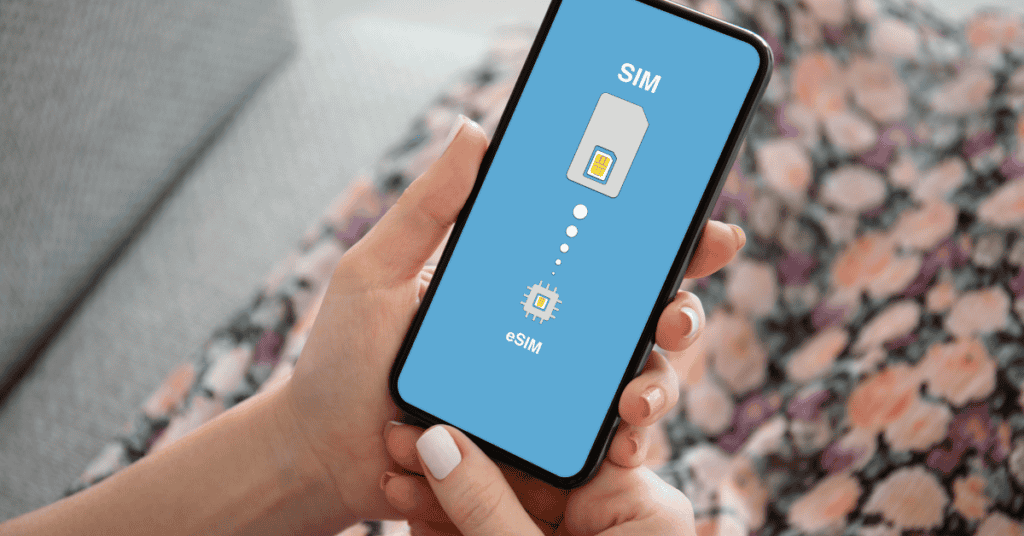
Collectively, your phone number, SIM card, and name distinguish you from other users on a mobile network.
While your phone number is unique to you, there are some circumstances in which someone else might also be associated with it- as you’ll discover below.
Reassigning Of Cell Phone Numbers

Reassigning of cell phone numbers can occur when your mobile provider detects a prolonged period of inactivity on your number.
For instance- let’s say you buy a new phone along with an entirely new SIM card, which you then decide to switch to for all of your future communication.
Fast forward a few months, and you find yourself needing to use your former phone number for reasons.
Whether you want to surf the internet or just reach out to an old friend, you may find your old number is already in the custody of another person!
This happens because phone service providers constantly reassign inactive or abandoned numbers to new subscribers on their network.
Typically, the reissuing of numbers occurs after at least three to six months of zero data usage and no incoming and outgoing calls.
There is a solution to this problem, as you can invest in a service that’ll keep your number, such as Safe Custody.
This is a prepaid service that allows you to maintain ownership of your phone number by paying a facility fee over a specific duration.
SIM Swapping
Have you been receiving warning alerts about changes to your online account details?
Is your phone behaving strangely to the extent that you can’t send a text or make a phone call?
If that’s the case, someone is probably impersonating you.
This form of identity theft involves fraudsters registering your phone number under a new SIM card (AKA, SIM card swapping).
Consequently, they can then intercept your one-time password, text messages, and other personal information- all of which they use to break into your various accounts and steal valuable information and funds.
How Does Someone Else Illegally Access My Phone Number?

Think about all the social media platforms you subscribe to, the games you play online, and the websites where you buy various items.
As well as providing other personal details, did you also provide your phone number when you subscribed to these sites?
Some online websites do a poor job of safeguarding your personal information and, as such, are susceptible to hacking.
Even large, credible online platforms like Facebook are worryingly susceptible to hacking.
Unfortunately, hacking exposes the majority of user data to the hands of fraudsters. Once acquired, these hackers then use that data to piece together a profile of you.
Over time, they might even reach out to your carrier or provider posing as you, with the primary aim of swapping your phone number over to a new SIM card.
Often, your provider will need to verify your identity by asking further security questions.
And because all your personal information is within their reach, the hackers can, unfortunately, succeed in impersonating you and taking over your phone number.
In this way, it’s possible then that your phone number becomes associated with another person who essentially is “you” but has the real you locked out of your phone.
Once they’ve succeeded, they can attempt to use your identity to steal funds from your bank account and solicit funds from your contacts. Terrible, indeed!
Phone Number Spoofing
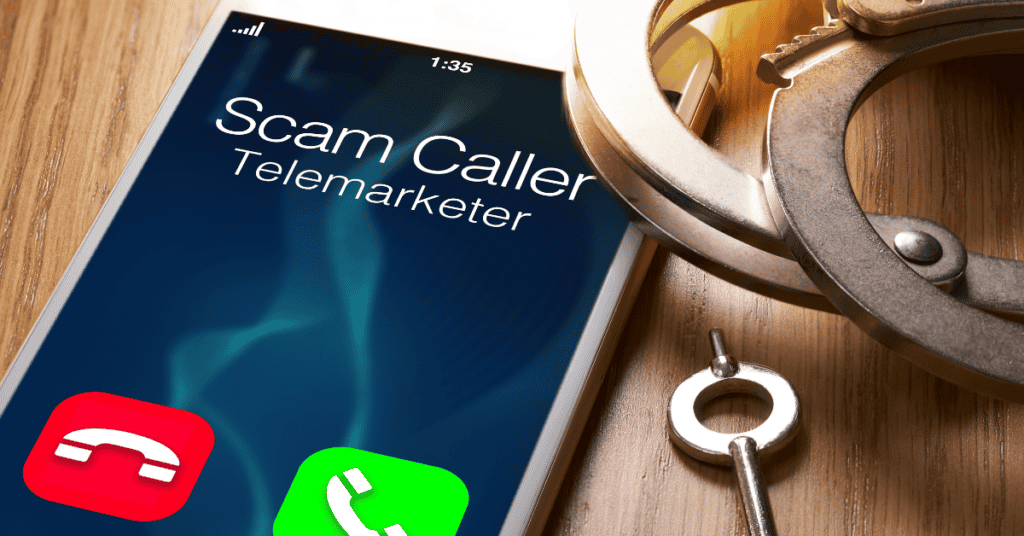
Have you ever received calls from people accusing you of spamming or scamming them of large amounts of cash?
If so, your number is likely being spoofed!
Every year, millions of people become victims of phone-based scams where the scammers use their phone numbers to mask Caller IDs.
How exactly does this work?
Well, for starters, let’s suppose Person A wants to make a call to Person B without revealing their Caller ID.
(We’re assuming Person A here is a scammer for illustrative purposes.)
Through voice-over-internet protocol (VoIP), A will be able to mask their name using person C’s (i.e., your) phone number.
When your number becomes a mask for A’s Caller ID, they can proceed to scam their call recipient.
For example, they might pose as an insurance seller, some company’s agent or a marketing expert to carry out their scheme. Using your number to hide their identity, they then convince the unsuspecting receiver into transacting!
Ultimately, Person A will have effectively protected himself from any angry callbacks or legal action from the victim by using your phone number and name as their caller ID.
Sadly, there is no limit to how often your number may get spoofed.
How Do Scammers Get My Phone Number?
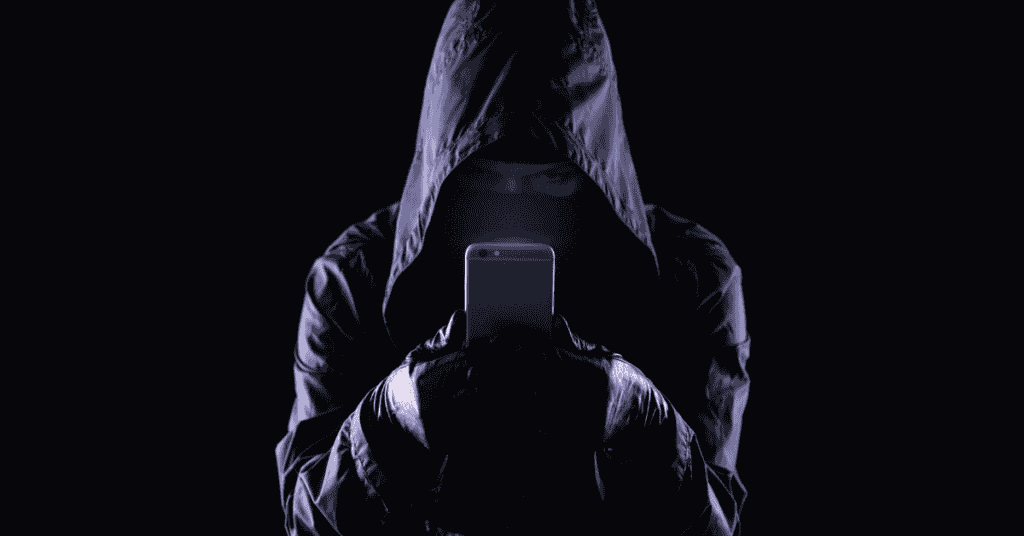
Spoofing is a numbers game conducted on a large scale by targeting personal information you might have previously uploaded onto the internet.
Scammers either buy stolen data from the dark web or steal it themselves from less protected databases.
With even as little as $5, they can quickly access millions of phone numbers stolen from unprotected websites!
How Do I Know If My Phone Number Is Associated With Someone Else?
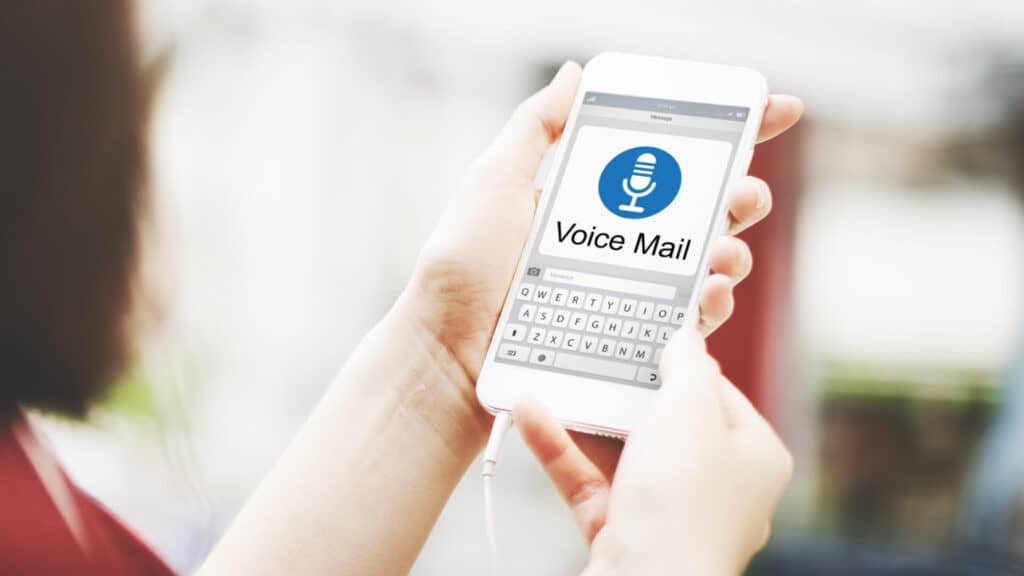
There are more than half a dozen scenarios that might indicate that you are using your phone number alongside someone else.
These include:
- Never finding a record of any missed calls when a friend or family member accuses you of failing to pick their calls.
- Having someone else’s caller ID show up when you call people that you’ve saved on your phone.
- Failing to find any record of voicemails, especially if you were expecting one.
- Receiving another person’s text messages.
- Getting redial notifications from people that you’ve never called or met even in person.
- Getting return calls from people you have never contacted in your life.
- Receiving notifications or messages from someone claiming that you called them.
If any of the above sounds familiar to you, it may be a sign that you’re inadvertently sharing your number with someone else!
Why Is My Phone Number Listed Under Someone Else’s Name?

When you first establish a telephone service, you can choose whether to have them publish your information in a public directory or to keep your details private.
Of course, this will also depend upon the terms contained in the telephone company’s contract when installing your telephone service.
Unfortunately, most people fail to read the terms of service, contract, and privacy policies of these companies.
Most telephone companies’ contracts allow them to share your information with their business partners, as well as place them in databases such as the White Pages and Spokeo.
Therefore, it’s likely that you’ll find your name, home address, voter registration, and phone number listed in those databases.
So why do the phone companies bother to collaborate in publishing such information?
Providing ease of access to such data comes with financial incentives. The high organic traffic that these databases receive enables them to profitably advertise other premium sites like Intellus that charge you to access their records.
However, as in-home telephone service installations lose popularity, databases now obtain your data from hotspots like social media.
Nonetheless, White Pages and other databases can still list your phone number’s previous owner. There are a few possible reasons for this.
Firstly, they could have forgotten to delist themselves from these sites and databases after abandoning that phone number.
Secondly, they may have simply not wanted to deal with the hassle of delisting the phone number- what with it being a costly process requiring frequent follow-up!
So, if your current concern is along the lines of, “My phone number is associated with another person on White Pages and other sites!” The reason is that these sites can often have out-of-date information.
It’s also the same reason why you might find that you keep getting a previous resident’s mail at your home!
What Do I Do If My Phone Number Is Being Used by Someone Else?
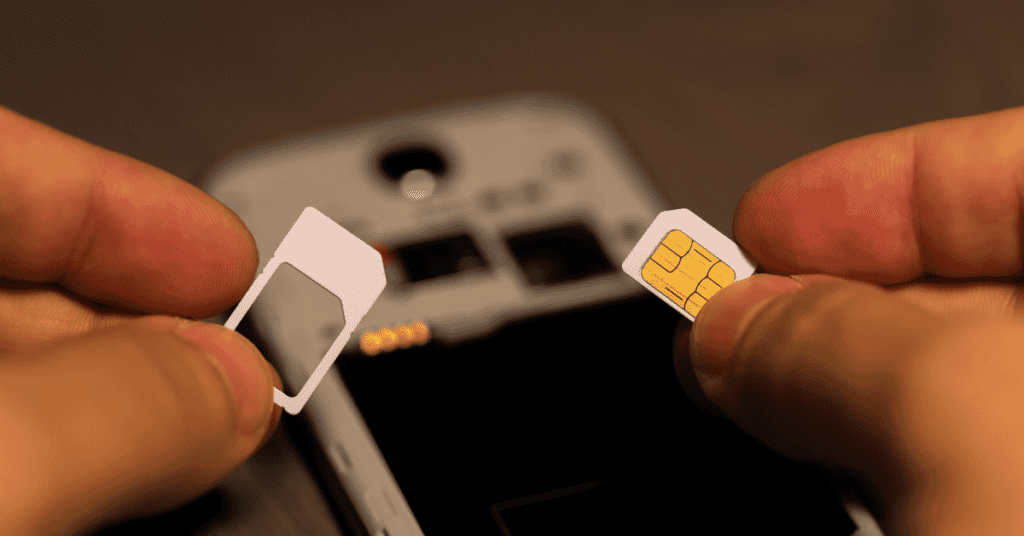
There are some limitations as to what you can do when you discover your phone number is associated with someone else.
However, in order to prevent the illegal use of your phone number and to take back control, there are a couple of strategies that may help.
Here is what you can do when you discover that someone else uses your phone number:
Reach Out To Your Provider
If a different Caller ID keeps showing up when you call someone, consider reporting the problem to your provider.
They will be able to help you reset your Caller ID or reissue the phone number back to you.
Report Spoofing Attempts On Your Phone Number
While spoofing is not strictly illegal in the United States, there are laws that allow you to report fraudulent spoofing attempts on your phone number.
You can place your complaint on the FCC website for the authorities to follow up on the matter.
Alternatively, consider reporting the matter to the issuer of your phone number. They might be able to terminate any fraudulent calls associated with your phone after verifying your claim.
Change Your Cell Phone Number
An endless stream of angry calls from spoofed victims can place a heavy toll on your peace of mind and overall mobile phone experience.
So, don’t hesitate to change to a new number even while staying with your current mobile phone!
Even then, remember to ask your carrier for a more recent number with fewer or zero previous users.
The Final Takeaway
To sum up, let’s go back to the question that brought you here in the first place:
Why is my phone number associated with another person?
As you have discovered, the overarching problem surrounds your handling of personal information online.
With cybercriminals out to get their hands on your phone number, it is essential to always keep your contact info as private as possible.
If there’s one thing that you should take away from this article, it’s that you should heavily consider deleting your information from databases like the White Pages!
Most importantly, exercise more caution about handing over your phone number to any website you interact with on the internet. Stay safe out there!
Do you know how to stay safe on your smartphone? Keep yourself protected with our Comprehensive A-Z Of Smartphone Security right HERE!
